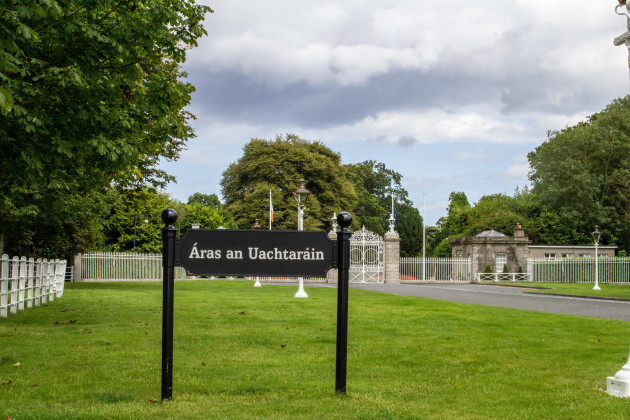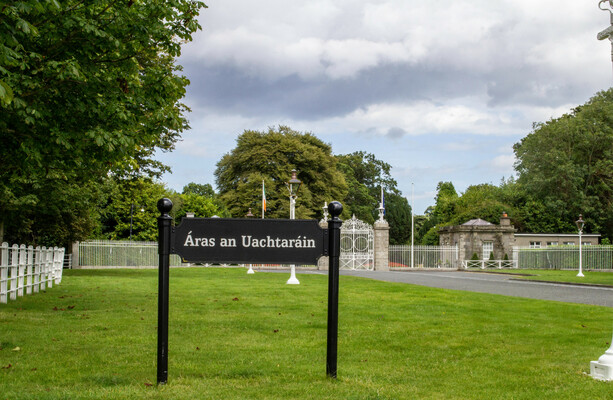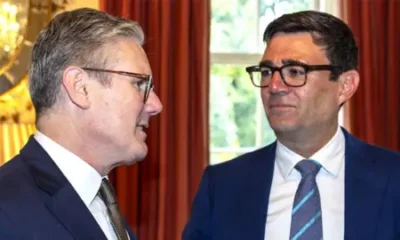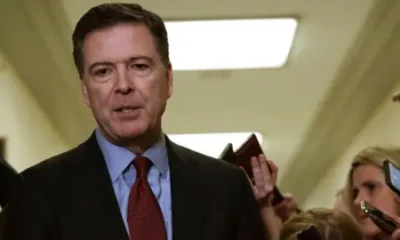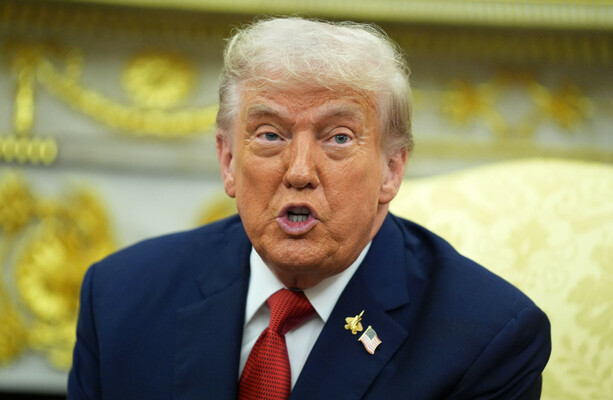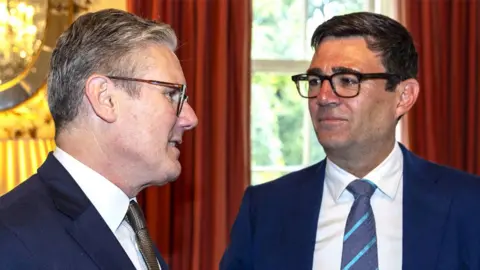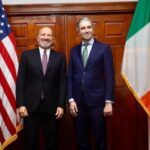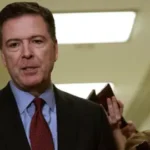AND THEN THERE were three.
At last, we know that the Irish electorate will choose one of three – Catherine Connolly, Jim Gavin and Heather Humphreys – on 24 October when deciding who will succeed Michael D Higgins as Uachtarán na hÉireann.
. Before getting down to analysis of the potential contours of the campaign, two of the hopefuls who failed to get on the ballot merit mention.
Gareth Sheridan, a 36-year-old entrepreneur who returned home from making millions in the United States with grand ambitions, managed to obtain the backing of Kerry and Tipperary County Councils. He was thwarted by the other councils he had targeted in a bid to garner an imprimatur from the required four.
Notwithstanding a baptism by fire in the media, some ill-judged messaging and unforced errors, Sheridan acquitted himself respectably for a political rookie.
Housing, in concert with additional challenges facing his generation in Ireland, was the central issue he raised in his short-lived bid. Of course, fixing this intractable crisis is not in the gift of the president, yet it is appropriately of utmost concern to the Irish citizenry.
Our parliamentarians have not solved the housing conundrum. Whether Sheridan would be willing to run in a future general election is a mystery. His outsider perspective and business credentials might render him attractive to a large cohort of women and men, young and old, who are frustrated with business as usual.
Maria Steen came close, oh so close, falling just two nominations shy of the necessary twenty from Oireachtas members. On Monday and Tuesday, the wind seemed to be with the socially conservative architect and barrister, particularly when the four TDs from Independent Ireland announced that they would row in behind her, followed by Minister of State Marian Harkin.
Steen hit a brick wall, however, in the form of the influential Senator Michael McDowell, who she must have been reasonably confident would lend her his support after she had worked effectively with him last year to defeat the family and care referendums. It has been reported that McDowell declined to even respond to or acknowledge her correspondence.
Maybe that could be considered bad manners, but regardless, that’s politics. The pressure tactics employed by the Steen camp online and elsewhere probably didn’t help her cause either. At any rate, Steen’s core adherents are furious, not just with McDowell and a few of his colleagues in the Seanad, but with what they deem an establishment cabal that was never going to allow a pro-lifer like Maria Steen to advance.
They gloss over the reality that, had Steen gone the council route and begun her quest months previously, she probably would have made it.
Speculation abounds as to why the excellent communicator left it so late.
My own suspicion is that she formed the view latterly that Connolly, Gavin and Humphreys were all vulnerable and that she would emerge the clear victor from the crucial televised debates, thus giving her a chance of actually winning the contest in four weeks’ time.
Nonetheless, those aggrieved are currently pledging to spoil their ballots, to stay home on polling day or to vote in protest for the leftist independent Connolly.
While that space is worth watching, it may be that these declared intentions borne of anger won’t amount to much ultimately in light of the fact that most people aren’t fully keeping abreast of or moved significantly by these developments at this incipient stage.
The state of the race
Now, it is extremely difficult to forecast how this race will unfold. Precious little can be said with any degree of certainty. Let’s assess where the three candidates are situated.
Catherine Connolly has been undeniably buoyed by the endorsement of a united left, despite the visible cracks in that wall. To appeal outside what is a loyal and sizeable base, the passionate advocate for social justice will need to overcome seeds of doubt that have been planted and will continue to be planted with respect to her own ideology and her consequent suitability to serve as president.
Connolly’s inner circle asserts that her negatives are already in the ether, have been ventilated and have been put to bed. They wish. The following are red flags for many and will not go away: her past ties to Clare Daly, Gemma O’Doherty and Mick Wallace, her unwise trip to Syria and her trenchant criticism of Ireland’s key allies at a fraught moment when we are uniquely exposed to swirling dark clouds on the global horizon. When queried on this front by journalists, her attempts to clarify points and reassure the sceptics have been unconvincing.
Jim Gavin has an enviable and impressive CV. That said, the Dublin GAA legend remains an unknown and unproven political commodity. He evidently has gone down well in the one-to-one encounters he has had at the ploughing championship and at other events he has attended.
Yet his media engagements and communication on the airwaves to date have been less than stellar.
Having been ordained as the Fianna Fáil standard bearer by Micheál Martin, Gavin has to be “let loose” in the arena on his own two feet and to articulate the case for why he’s the man for the job, come what may. At the risk of being repetitive, but with the caveat that they are arguably more important for Gavin than his rivals, the high-profile debates could tell the tale.
Conversely, Heather Humphreys has been on the political scene for decades. She is perceived both to be a decent person and a committed public representative. As a Protestant from a border county, she is often portrayed as something of a transformative figure and her prior ministerial role endeared her to politicians in her own Fine Gael and beyond.
She is definitively the Fine Gael candidate, in contrast to Gavin, whose being parachuted in is resented by elements within Fianna Fáil.
Humphreys will be attacked for the missteps of the Government she was part of, though. Some consider her a limited politician and wonder if she has the gravitas typically associated with those who have been selected to be the president and this country’s de facto leading representative around the world. The Monaghan woman retired last year, referencing her health and energy levels. Still, here she is. This campaign will test her capacity.
Initial thoughts? My first guess is that Catherine Connolly will have to fare exceptionally well on first preferences and be substantially ahead of her foes to prevail. My second is that Heather Humphreys will do better on this front than Jim Gavin. My third is that Humphreys will be best placed of the three to draw second preferences.
Mind you, these are merely guesses. I am making no predictions. We are presented here with a rather unusual scenario that few could have envisaged at the start of the summer.
Larry Donnelly is a Boston attorney, a Law Lecturer at the University of Galway and a political columnist with The Journal.

